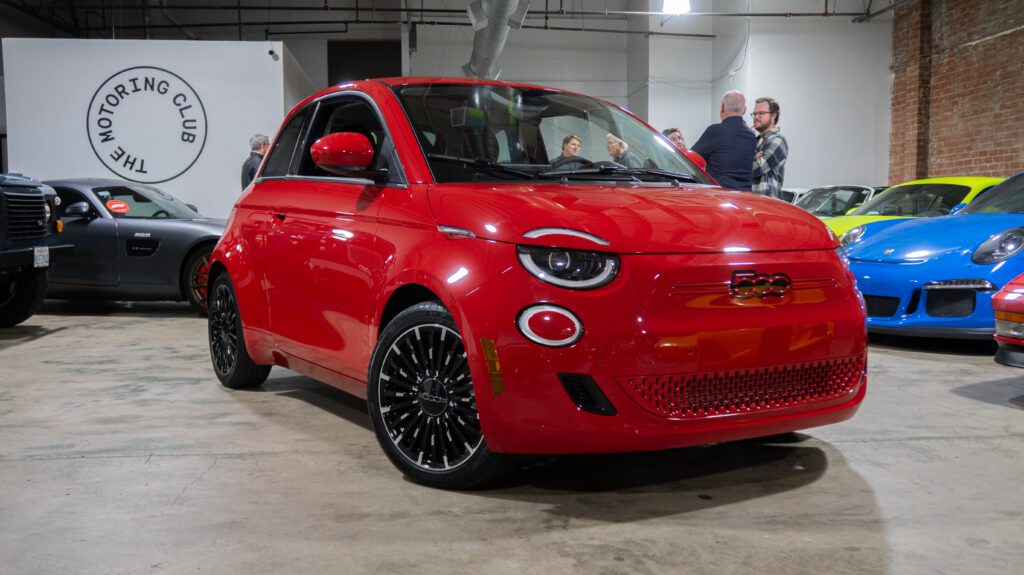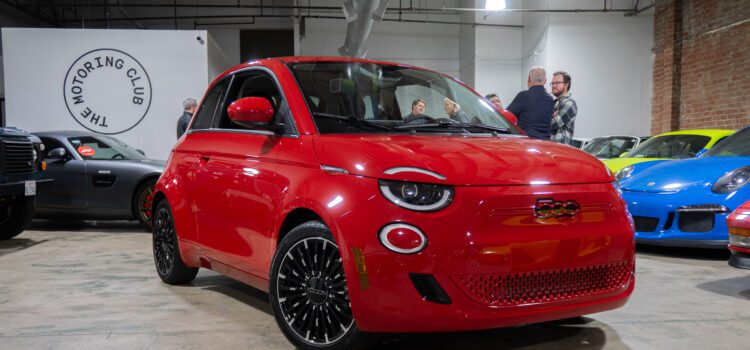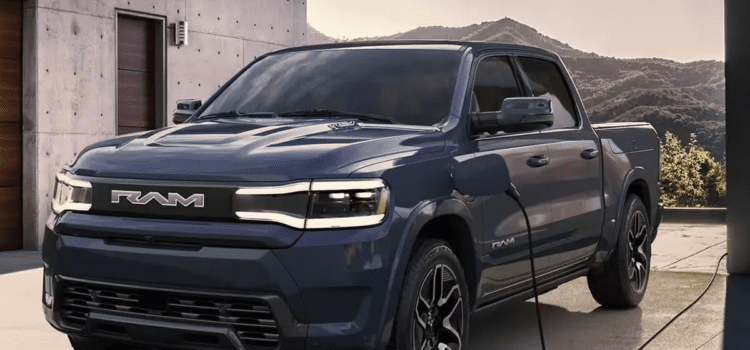The all-electric Fiat 500e is one of the coolest new EVs, but does it belong in the U.S.?
Perhaps I’m not the ideal candidate to write this piece, given my family’s affinity for the lil’ Ciquecentos, but no one else will, so here I go. It’s official. The all-new, all-electric Fiat 500e, reborn for the European market in 2020, now makes its way to American shores as we speak, heralding a new era for Fiat in the United States and Fiat’s first real, non-compliance-car attempt at an EV for the North American market. Hipsters rejoice! Rise, my beloved tinker toy! Rise!
At first glance, it’s undeniably easy to dismiss the new 500e as some unimpressive cash grab by Stellantis to resurrect the recently deceased (to Americans) 500, with okay range and Corolla performance numbers. But that’d be completely ignorant of us, even if it is very on-brand for mindless consumers in a blatantly more-is-better society. The new 500e is not here to wow us with any victories in the numbers game. It’s not here to win any drag races or set any world range records. As Fiat puts it, it’s just here to be a “damn good car.” And a damn good car, it might be. But is it the right car for this market?
Skip to section:
- What is the new 500e?
- Not playing the numbers game
- A continuously evolving case study
- Will it survive?
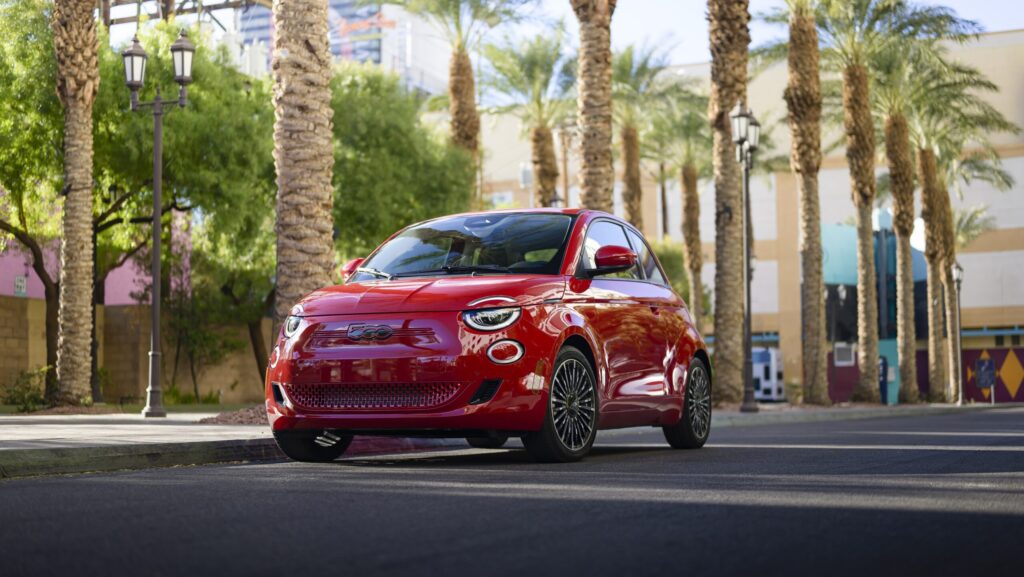
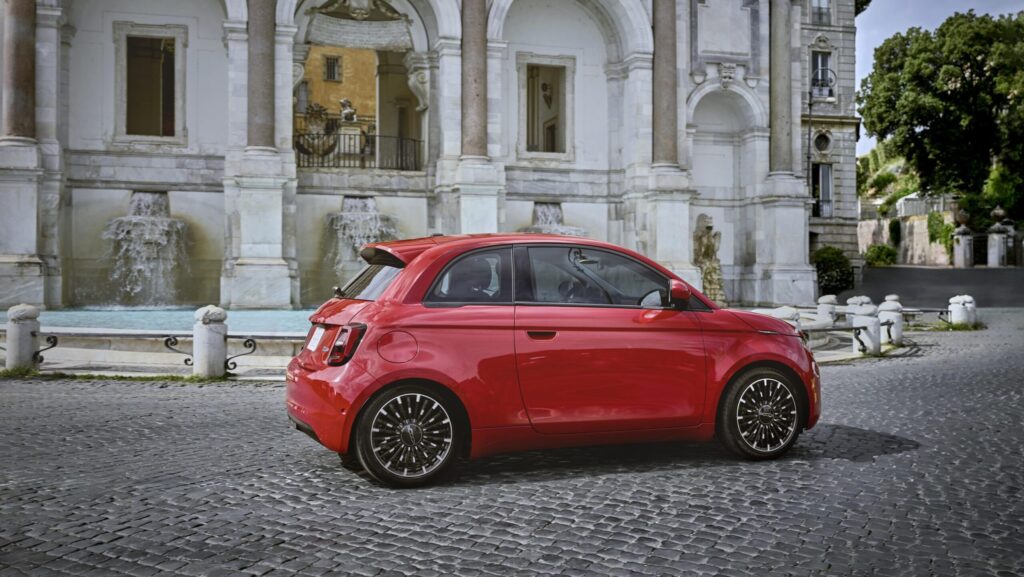
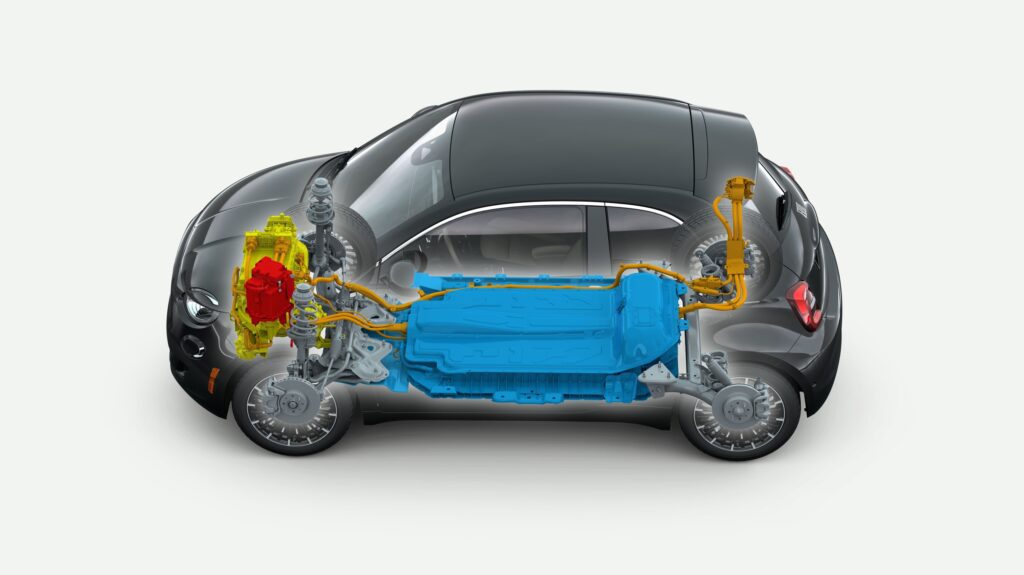
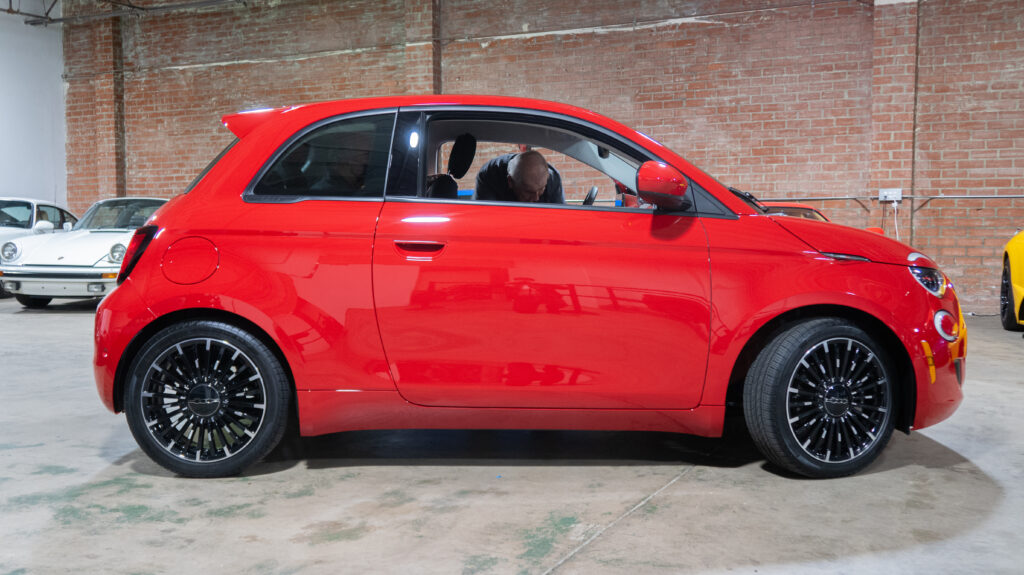
What is the new Fiat 500e?
The last Fiat 500e, while actually well-received for delivering solid driving dynamics, was often dismissed as a mere compliance car, something to keep Fiat’s foot in the door in California and nothing really more than a gasser Fiat 500 converted to run on electrons… for, like, less than 90 miles. It was akin to many other ICE-cars-turned-battery-powered science projects of the time, just a little over a decade ago, but that didn’t excuse its afterthought development, California and Oregon-only sales, and lack of usable range. Even Fiat’s own CEO famously slammed it as a money pit spawned out of necessity. Ironic that it garnered a cult following in the years since, and now half my neighbors have snatched one up to use as grocery store shuttles.
The new 500e rides on a bespoke platform intended for EV use from the start and is available for all 50 states. It ditches the old compliance car’s 24-kWh battery for a 42-kWh lithium-ion/nickel manganese cobalt unit, helping it produce a healthy 118 horsepower and 162 pound-feet. Despite the extra battery capacity, it weighs roughly 50 pounds less than the outgoing car, making it 600 pounds heavier than the old gasser 500s but hundreds of pounds lighter than any other EV in its segment. Keeping the battery down low and pairing the car’s revamped suspension with a wider stance and standard 17-inch wheels wrapped in 205-wide tires should translate into a superbly fun-to-drive commuter with more high-speed stability than any previous generation 500. Inside is a 10.25-inch touchscreen with UConnect 5, wireless CarPlay and Android Auto, built-in GPS navigation, a digital gauge cluster, and adaptive cruise control.
Fun facts. That wheel and tire package is the same size as the outgoing Abarth’s. And if certain tidbits inside and out seem familiar, it’s because they better be. The platform is bespoke, but consider that 500e’s details to be a little parts-bin hodgepodge of Stellantis’ finest. The 10.25-inch screen is from the Alfa Tonale/Dodge Hornet, while the door handles, start button, and interior door release buttons were plucked from Maserati. Get that. This shares a start button, and door switches with a GranTurismo and MC20. Viva Italia!
[Button id=”477″]
| Base prices: | $32,500 |
| Motor/battery choices: | AC three-phase with permanent magnet w/ 42 kWh lithium-ion nickel manganese cobalt |
| Transmission choices: | Single-speed direct drive |
| Drivetrain choices: | Front-wheel drive |
| Power: | 118 horsepower |
| Torque: | 162 pound-feet |
| Weight: | 2,952 pounds |
| Zero-to-60 mph: | approx. 8.5 seconds |
| MPGe: | TBA |
| Range: | 149 miles |
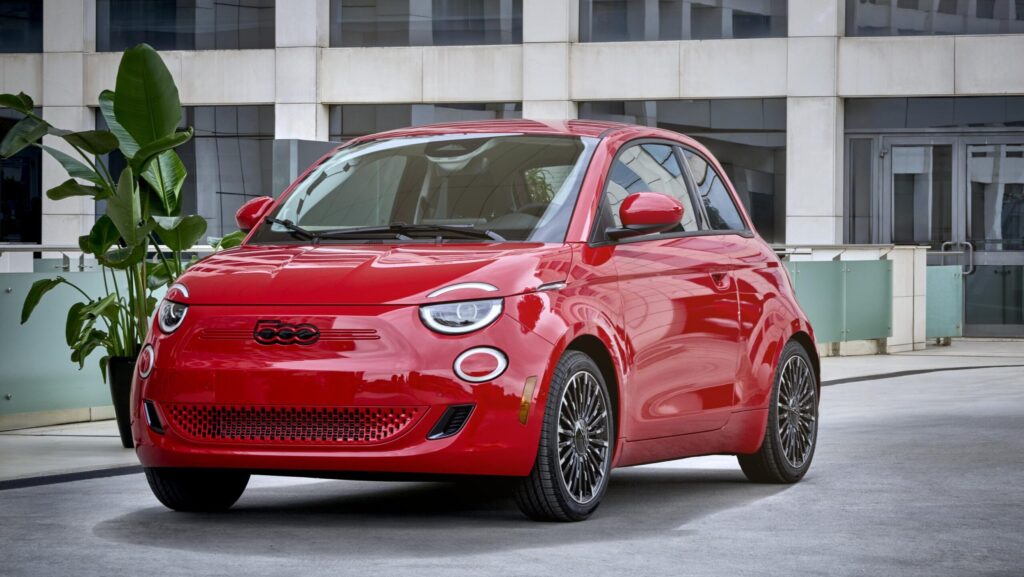
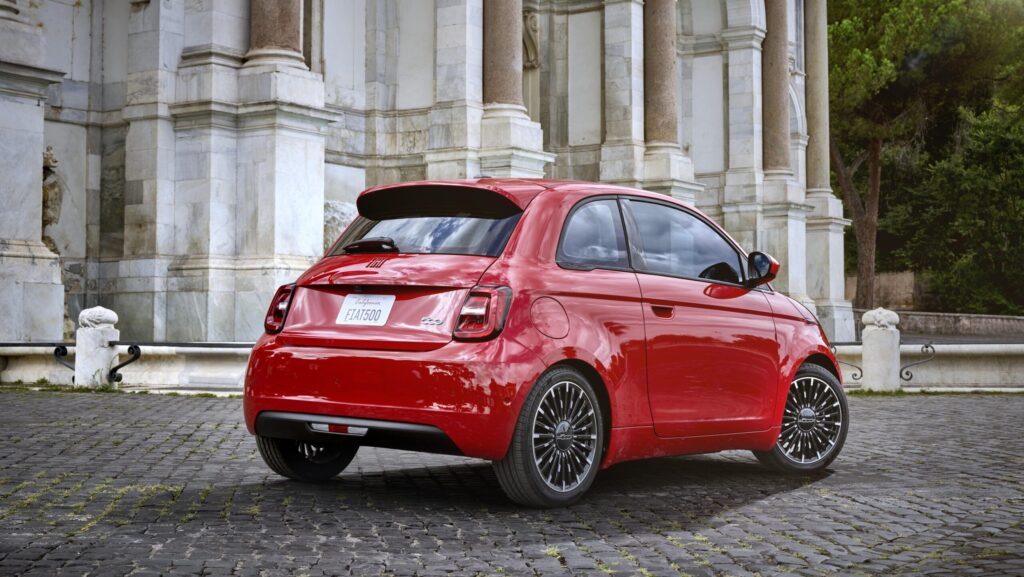
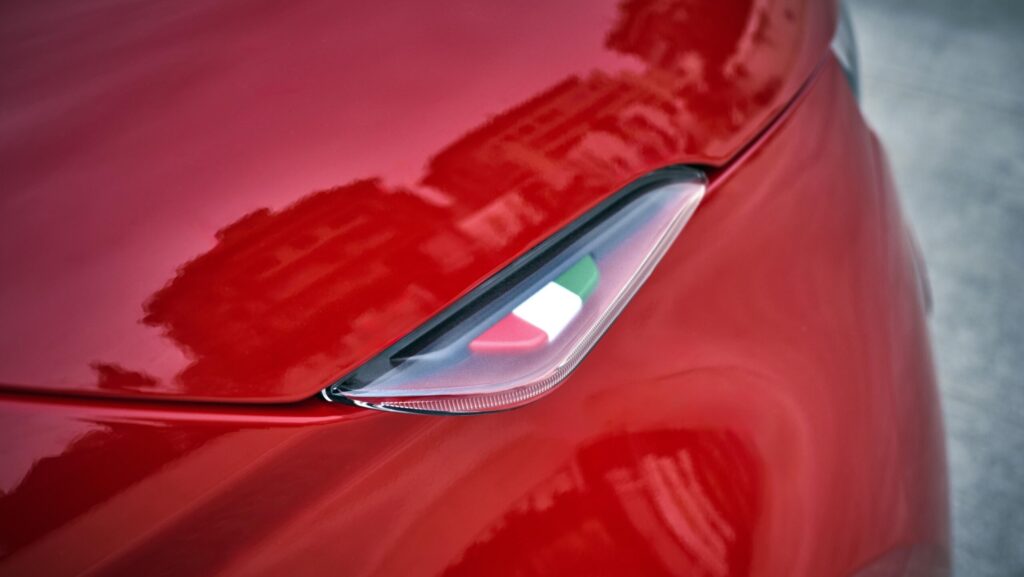
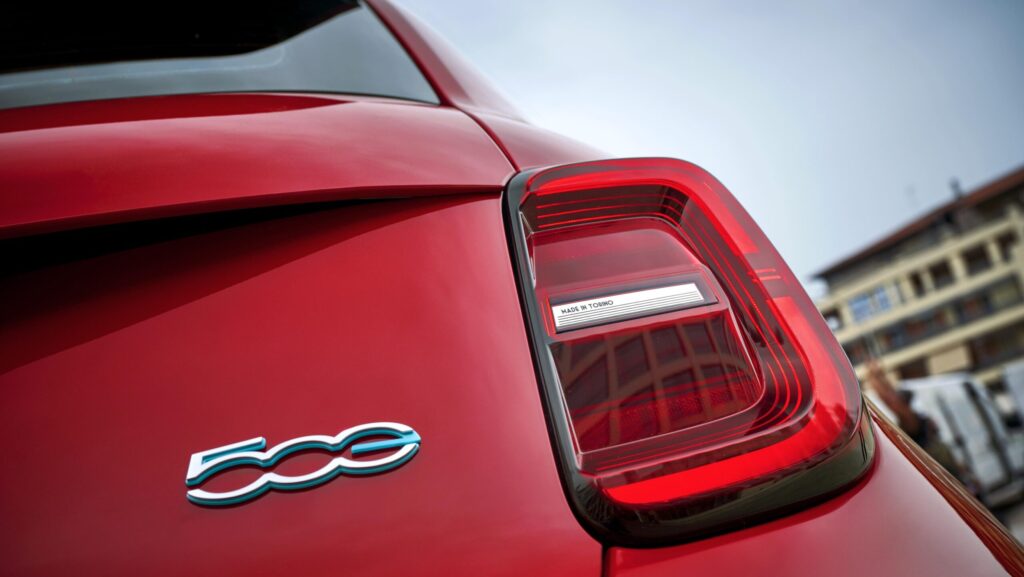
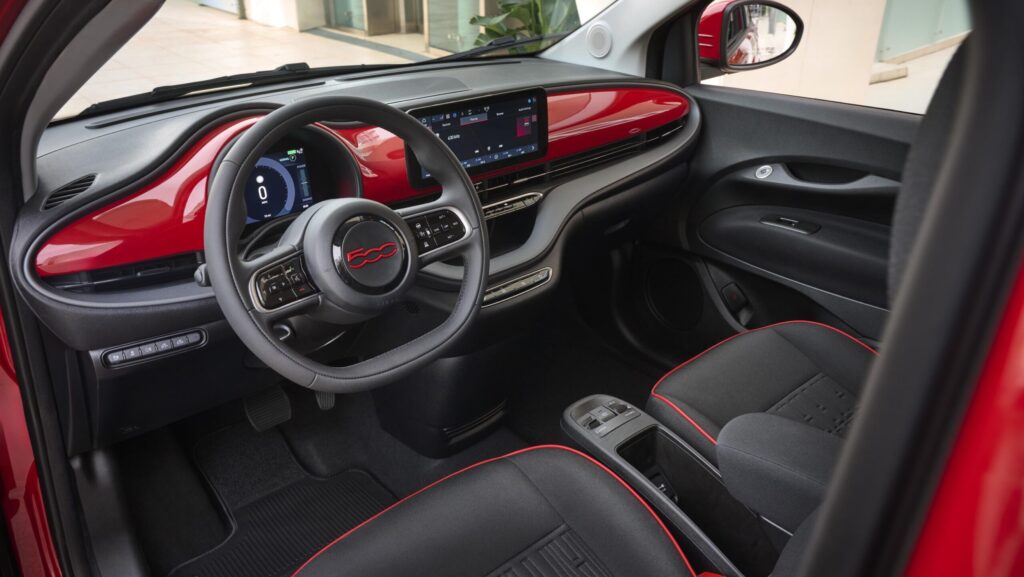
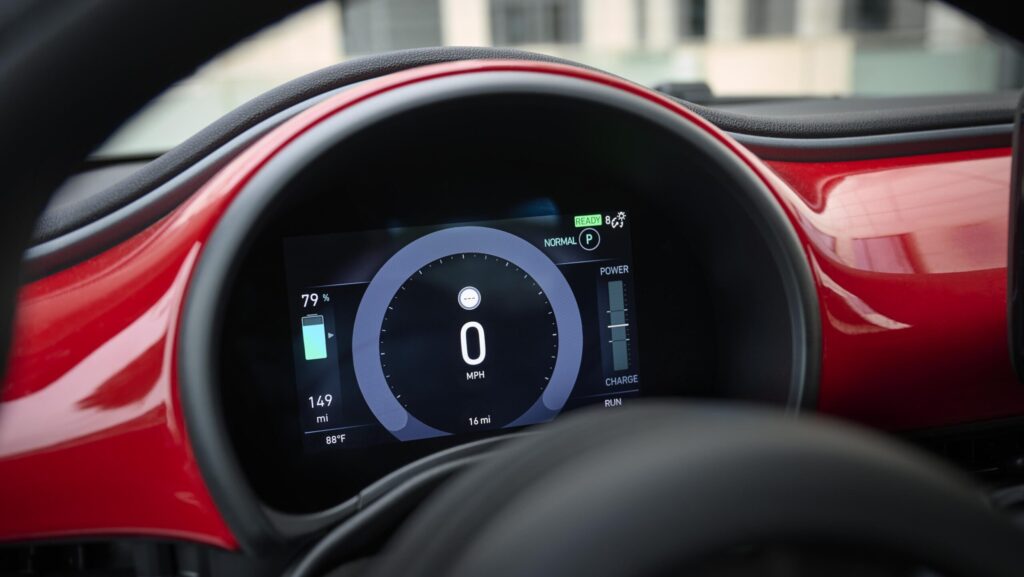
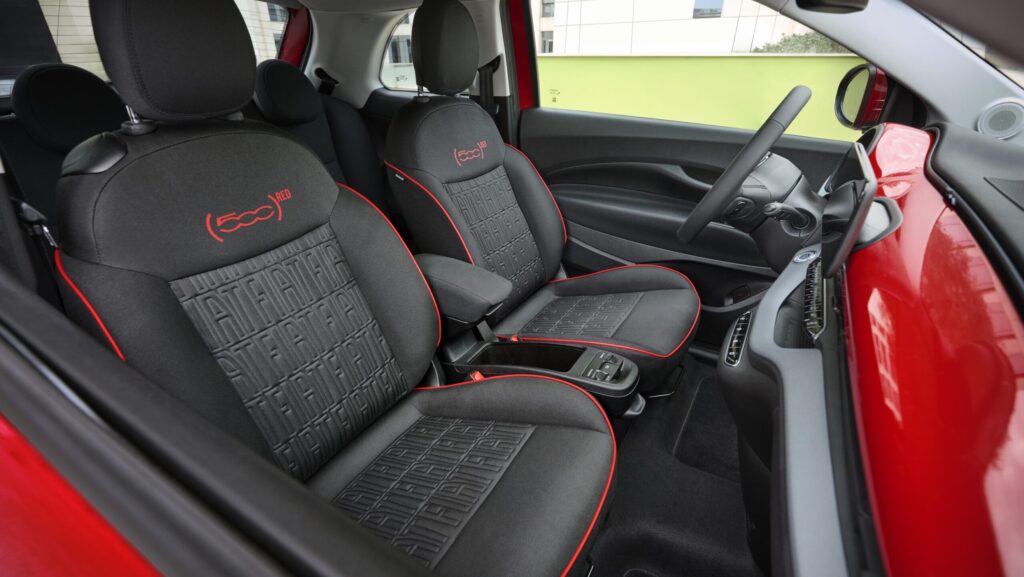
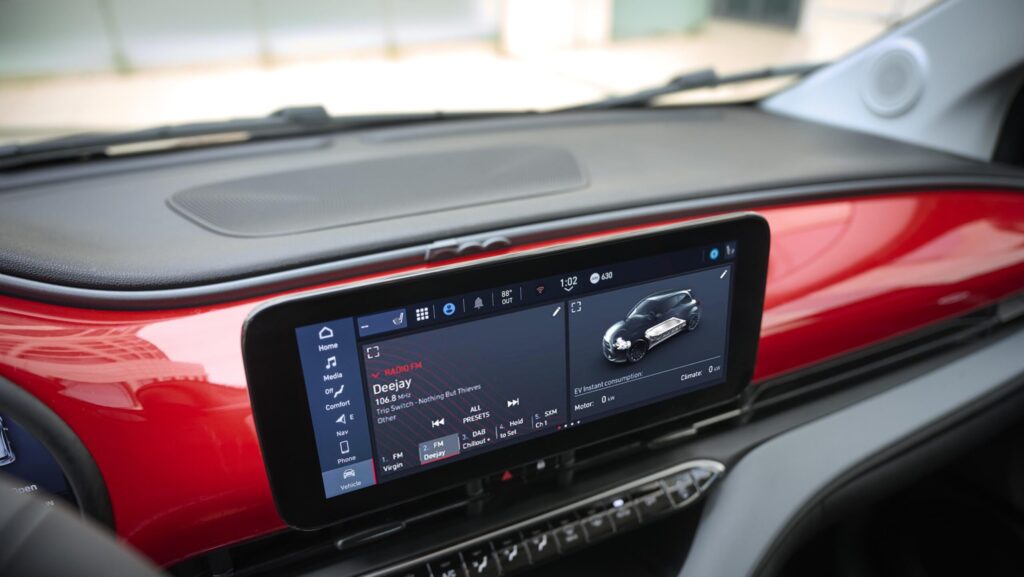
The Fiat 500e cares not for your silly little numbers game
“Cares not for your silly little numbers game,” I say. Proceeds to infodump a bunch of numbers. Oops.
The 500e is part of Fiat’s “Dare Forward” bid to achieve 50% EV sales in the U.S. and 100% in Europe by 2030. And I’m sure they can get there if buyers can see the little econobox for what it is: perfectly fine urban transportation. It’s not meant to wow anyone with world-beating range estimates or instant charge times. Fiat knows this. And to many North American consumers, that may be enough to have them look the other way. Not the best first impression. Except the 500e was tailored to excel at being accessible transportation for urban environments, delivering just what you’d need and nothing more.
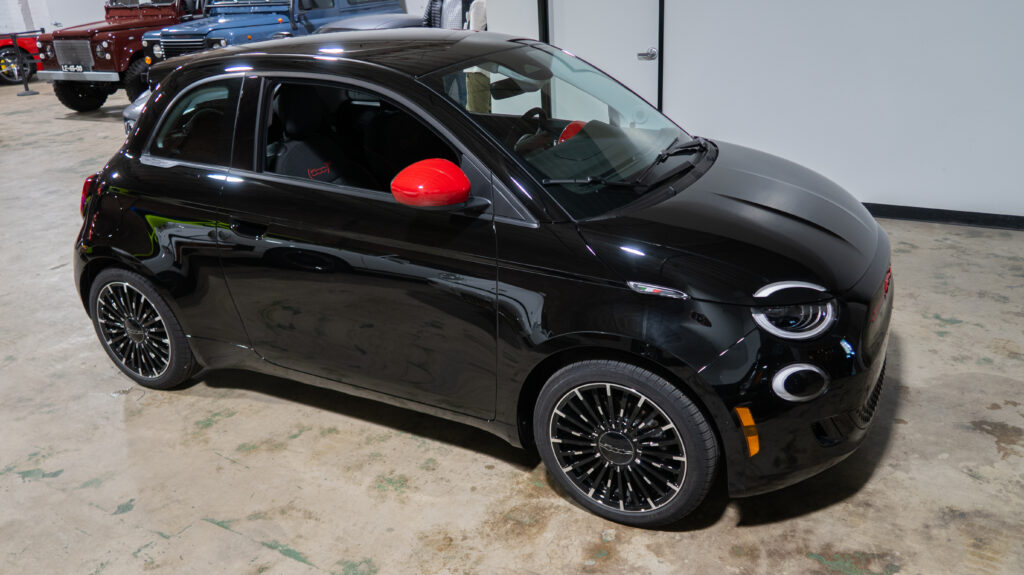
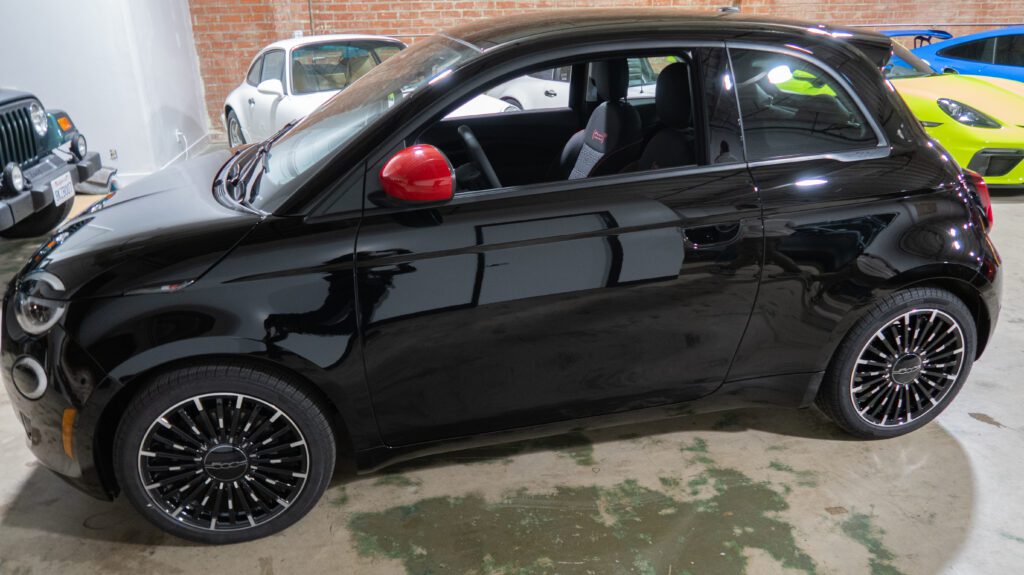
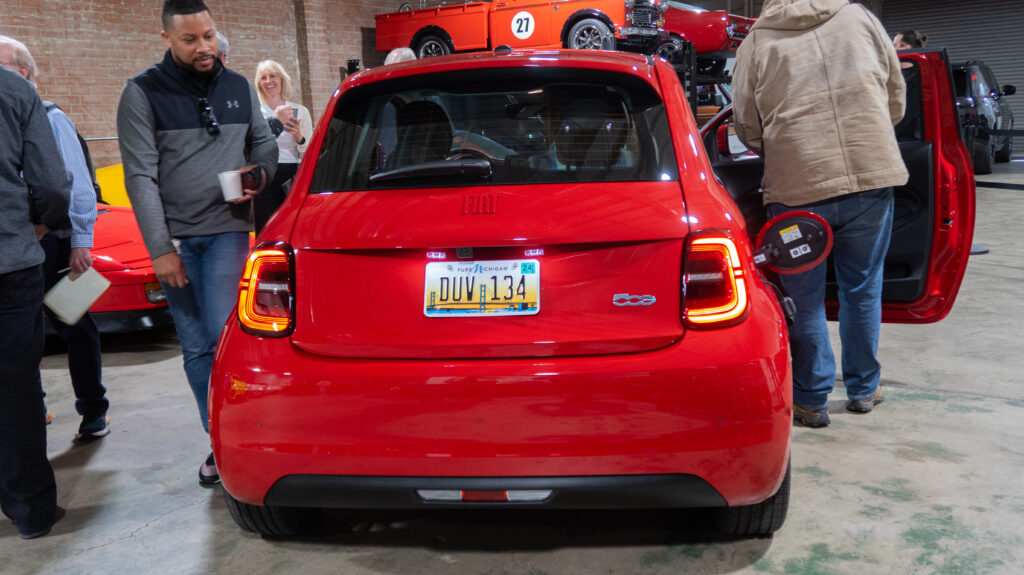
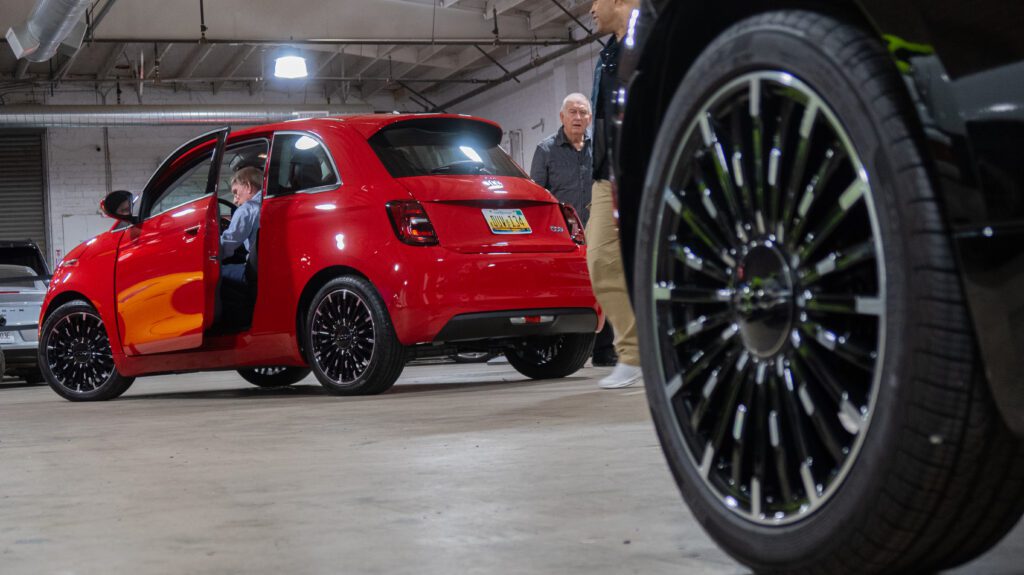
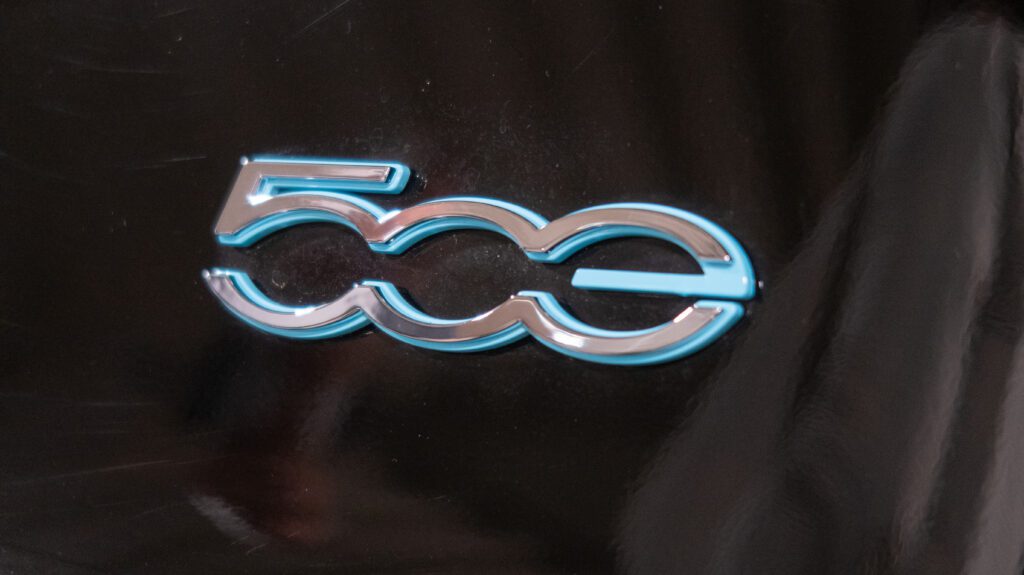
The average American commute is around 50 miles if not a little less. Fiat gives you 149 to work with. Most EV owners charge at home, assuming the car is sitting for hours overnight. The 500e will fast charge to 80% in 35 minutes, and the base price includes a Level 2 charger or Free2Move charge credits for those who already have their own charger. How thoughtful of them. 0-60 in 8.5 seconds is roughly on par with today’s econoboxes, and 162 pound-feet of torque available at 0 rpm means stop light drags or darting up and down the hills of San Francisco are more effortless in this 500 than in any prior iteration, turbocharged Abarth included. And did I mention this is reportedly the third most affordable EV on the market, third behind Nissan Leaf and Chevrolet Bolt?
Starting to see the gist here? Fiat is aiming for a usable EV that can thrive in most urban environments in a far more attractive and charismatic package than any Bolt or Leaf. No disrespect to those fine vehicles. But there’s no substitute for the Cinquecento’s cutesy Italiano vibes, which Fiat claims has the potential to shift and change throughout the 500e’s life cycle.
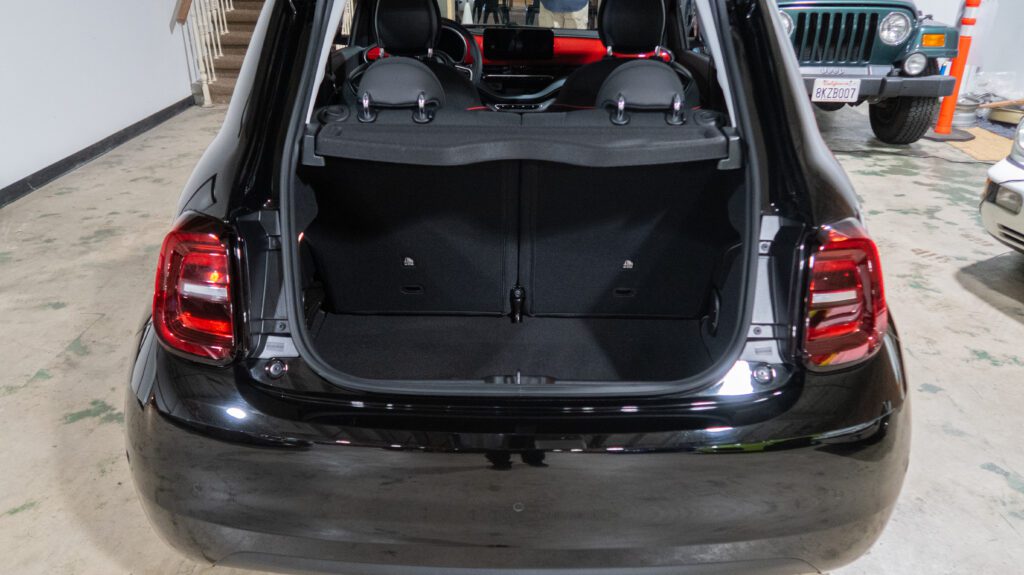
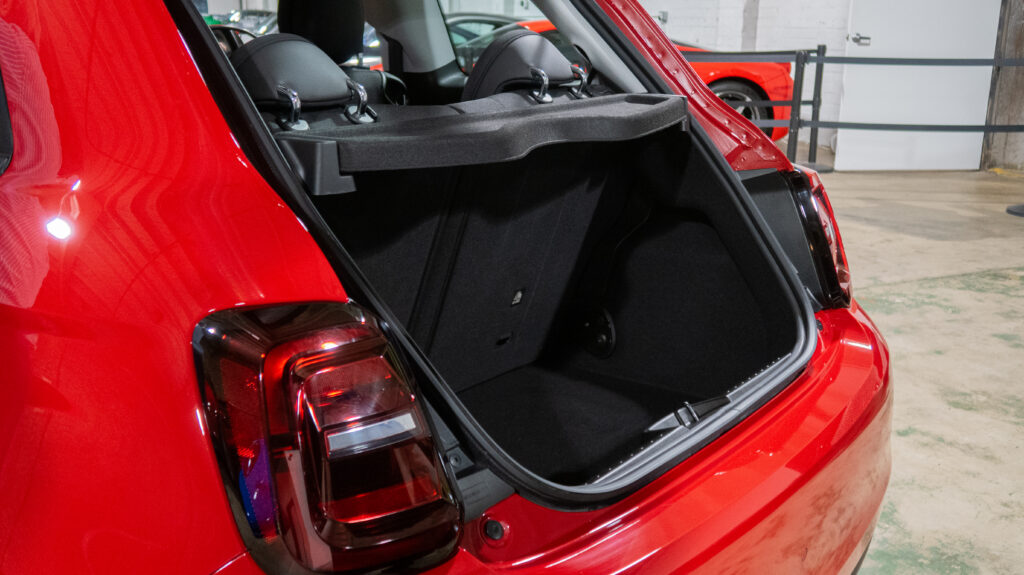
The Fiat 500e lineup will always evolve
According to Fiat North America’s current head honcho, Aamir Ahmed, the current 500e will launch in the U.S. and Canada as a fairly simple RED model (yes, it comes in more colors than red), serving as a sort of study as they see what buyers want and what Fiat thinks they can pull from European cars. There will initially be the sole RED model, which features three available colors and the option of all-seasons or summer rubber, but that’s only the start.
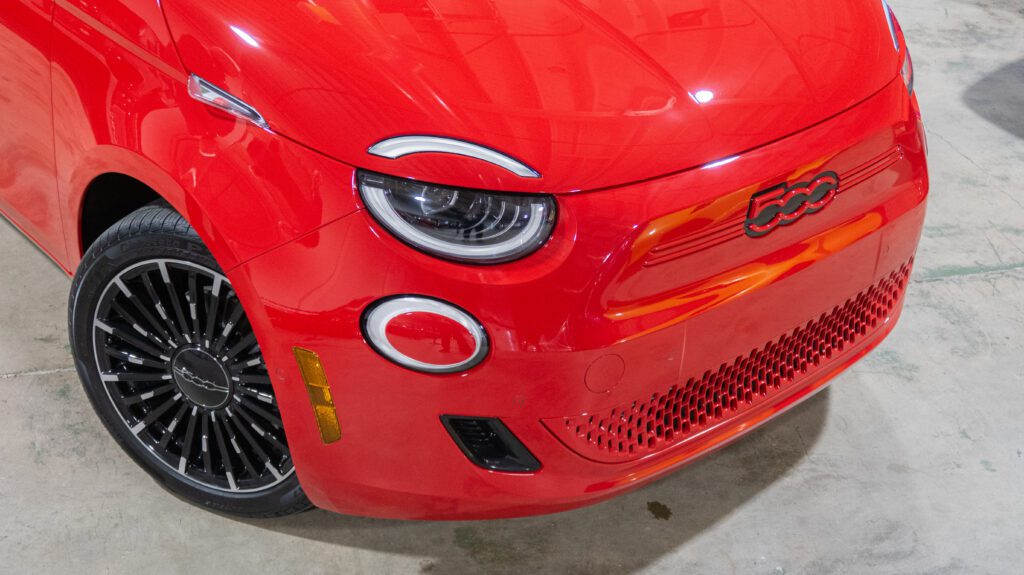
One way Fiat aims to make the 500e more appealing is through its goals of constantly evolving its lineup, like all the fan favorites in the automotive kingdom, from Mustang to 911 to Challenger. Buyers are told to expect something new, whether it’s some sort of flamboyant collaboration with brand partners, like the fashion brand concepts they debuted before, or a more content-rich model with goodies pulled from European cars, set to debut in “drops” like this initial drop of RED models. If Americans want a ragtop cabrio or a rip-snorting Abarth, then sure. They’re all certainly on the table, according to Ahmed, but Fiat is just playing its cards carefully for now while they see what really clicks and doesn’t click with American audiences.
And you know what? They’re right to tread carefully. Fiat should navigate its revitalization with extreme caution. Time to talk skepticism surrounding one of the most wishy-washy automakers in America.
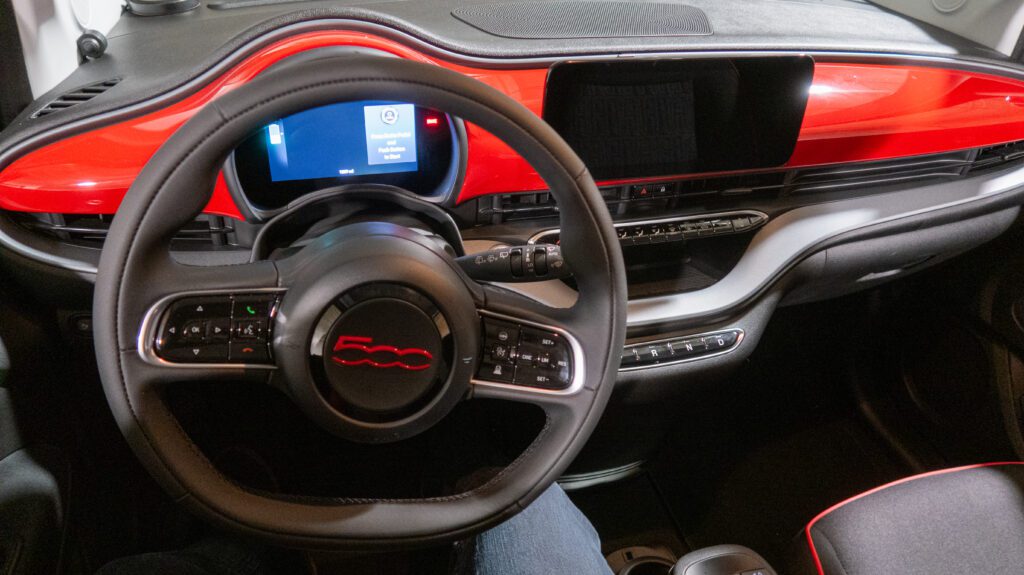
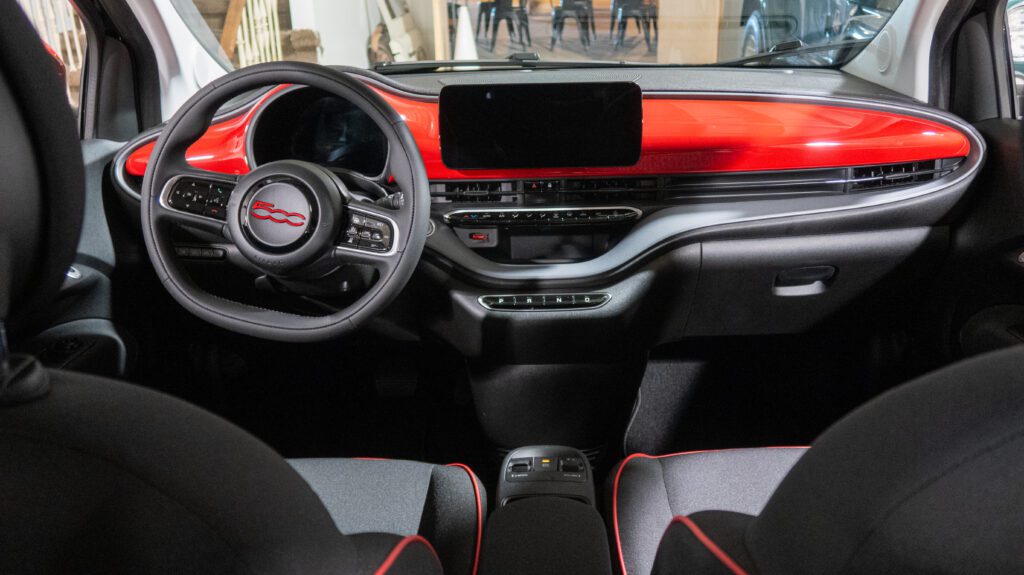
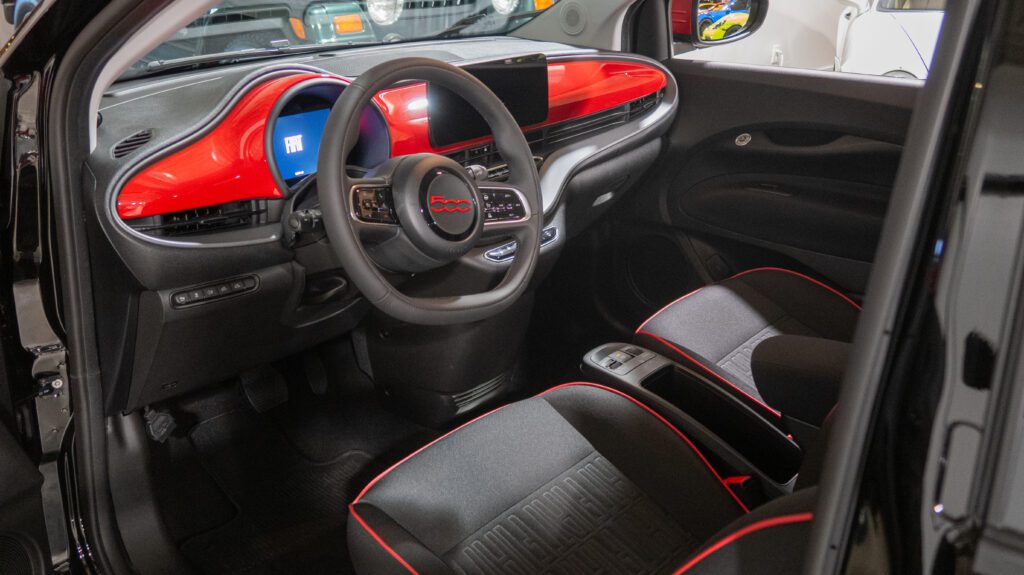
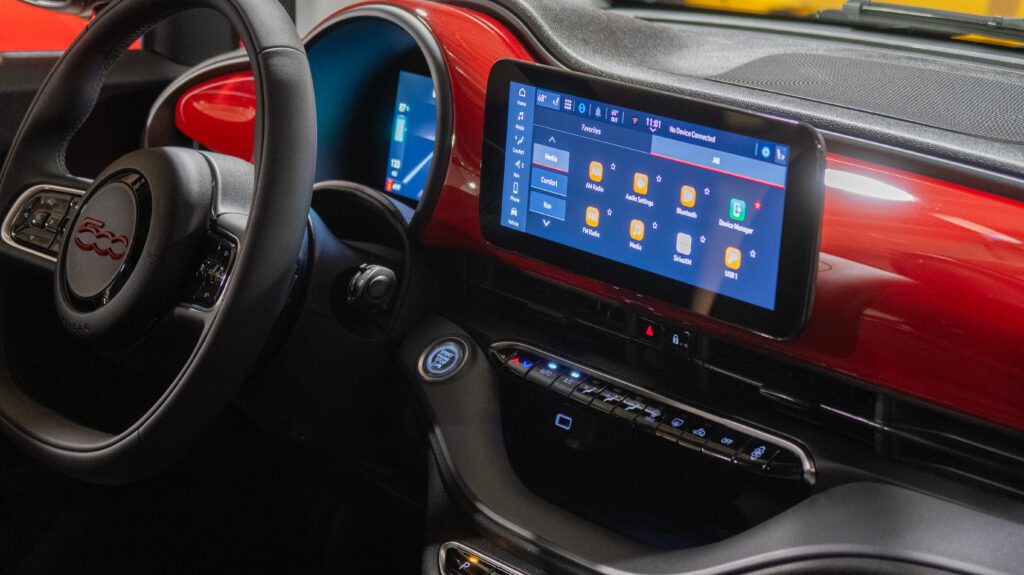
[Button id=”476″]
Will the 500e survive?
Oh yeah, and that’s the other thing. I said it wasn’t a compliance car like the old 500e. It’s not. It’s a “compliance car” in different ways.
The Fiat 500e carries the torch of the outgoing generation and welcomes the Fiat 500 lineage back into North America. But sources have shared with me that it’s not the definitive end-all Fiat vehicle for our market, or at least it won’t be for very long, nor is it the cash grab I originally speculated it to be. Like a handful of other unique EV curiosities to have launched lately, the Fiat 500e is a placeholder. An appeaser. A stopgap. It’s a way to keep the Fiat name relevant until a new wave of “proper” USDM cars reportedly arrive in a few years, earn Stellantis some tax credits in the process, and allegedly serve as a low-cost, low-effort guinea pig for experimenting with their direct-to-consumer sales tools. Smart, I suppose. But that means it’s not the next big 500 I was hoping for. And frankly, this 500e could never be that, no matter how cool.

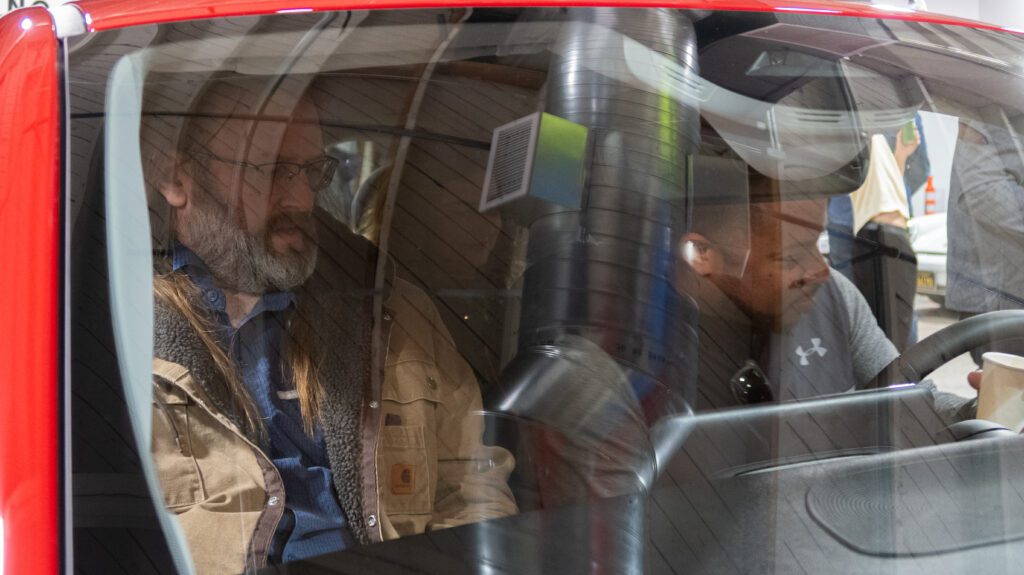
The 500e has been a hot seller in Europe since it dropped in 2020, moving hundreds of thousands of units in a few short years. That’s Europe. This is America, where EVs are the politically charged bane of many people, distances are long and far, and buyers can be a bit, uh, stubborn? Superficial? Extra careful and particular about car buying in the wake of shit-ass interest rates? Let’s say all of the above. In a time where even members of the Big Three are backpedaling on their heavy-handed EV efforts to explore other avenues, citing slow demand growth and high costs, here comes a company that failed to hang on in a highly competitive, ever-evolving market resting its hopes on a sub-200-miles EV city car without any other angle other than it being good in cities.
Sources have also fed me more deets regarding the 500e’s gestation, such as a troubled and confusing entry into the U.S. market stemming entirely from the notions of being “a day late and a dollar short” and “great car, wrong market.” It’s nearly identical to the European hot-seller but coming to a market that’s on the fence of EVs, has comparatively ill-prepared infrastructure, and lacks the sheer size, versatility, and practicality other EVs or even normal cars offer for similar money. Yes, it’s a solidly engineered, well-built car that oozes style and character. But how many American buyers are picking low-cost EVs based primarily on that? On top of that, being constructed in Turin, Italy hurts its chances of qualifying for all the possible EV tax credits, if any at all.
These are going to be sold or leased to careless hipsters who really, really want it (i.e., me) and affluent folk looking for a grocery getter as their fourth or fifth car. You’re not prying a prospective Model 3 Standard Range buyer away for this. And that’s a bit of a shame.

As Ahmed put it best, “We don’t want you to care that it’s electric or not. We just want you to care that it’s a damn good car.”
And I’m sure it will be a damn good car. Engineers and Euro journos alike all preach that it is indeed a damn good car. Time will tell how well the 500e will truly perform Stateside, but it will be viewed as a cutesy fashion statement for the few who want it. If you want one and your lifestyle can accept one, then by all means, get one! This thing will be just dandy in its intended environment, like New York, the Bay Area, or even my home of Las Vegas, where distances are short. Fiat’s efforts are welcome, but history and stigma work against any dream of cementing itself in our market with any semblance of stability and permanency. Perhaps they’ll surprise us. Perhaps not. But hey, any Cinquecento is better than no Ciquecento. So welcome back, little fella. Good to see you again. Please tell your 500e Abarth kin overseas I said hello and that I’d love a visit.
